https://cool.sa/wp-content/cache/breeze-minification/js/breeze_cf53b91f8b3ad06b28e17e9a4fe085effd8f1a74cce2d6031b7b9161125c084ec2abb751bcff4835360d74f54f713eb44cc22fc45ff1139616780837fb83eac0.js
https://cool.sa/wp-content/cache/breeze-minification/js/breeze_7178d11f9f45fba9c81dc394efde2188e0a4eeda3ad4358efd7513b34e2c0ac131c8499691d3bf38d780f96dc4fe52cb10c878e4324056d4d309259a73a216aa.js
https://cool.sa/wp-content/cache/breeze-minification/js/breeze_148e703c8e51086459b9a6fc0f431e832fc96d9547e09419696ce0cc7ac441f1414cfff58ec4af3a82a2da97d4f3f3e3490b801a81e7277b8a55a5f460394752.js
https://cool.sa/wp-content/cache/breeze-minification/js/breeze_5ca1c7a3915866005da1ece8a1c4ed088e94935d9caaa1daab0dfae80f4e7520dcb1b7d270cf43b96bb4373a254a182b93e6e46cc40e89023c02ceb82d48749f.js
https://cool.sa/wp-content/cache/breeze-minification/js/breeze_ac1262fe7a4f8823dc93d4f8a912e0313e6a37380a2934324f0ced1183bcb789907520b8cea0d67c8c486d6c5a65761ff9375cc6a4b88a17512827826e566f08.js
https://cool.sa/wp-content/cache/breeze-minification/js/breeze_143b2d8d92807bc6521f0e61f841fa54c0db71ec807773acbd0d3412eadf4387c31414554e2e01f5bcefbd4cf2be9891e3664d6ce9888142d84349648349e0f2.js
https://cool.sa/wp-content/cache/breeze-minification/js/breeze_aea7f5a05a5e46774a150b993bedf4bf59d2e91c6f45d3beb2dad052176b5f6d0db0368a5cda8160f69238552bcc6befc507b3f50bd7c3339d5400316e5eb2d8.js
https://cool.sa/wp-content/cache/breeze-minification/js/breeze_291c125ca13d35f2668333c3995c456a806d58b4f4ed76b82206f6e3aff45923a1765958d89cbeca1db91c735096695b2d8f53fd6f4f7cdde9ac28ee539c6ac9.js
https://cool.sa/wp-content/cache/breeze-minification/js/breeze_ea73423e75fb8fdd9464ae4d574f6c99ab626edb417f578ada0f101d1bc05c6a8144dbd713bc1ff2ee90aa4ead9885643e0abf9fbff434ee9187f6da9e8ed6fa.js
https://cool.sa/wp-content/cache/breeze-minification/js/breeze_445965b952e522480d992cbac1de0330707deb2c888b4326de0eadec70e8ae7d8d38a81fdf5c1dec73c6dc9ec94a07c8508a6af3c206ae7c2f8d7a93f6de9ffa.js
https://cool.sa/wp-content/cache/breeze-minification/js/breeze_a129f484f4eb76ec606a085cbf400eeaab623145fe206278cc1d4e7e613c38fc716616f93c2611d07baa17b3c640b3f3f16ffdcb3778418a7dac6a775316caf6.js
https://cool.sa/wp-content/cache/breeze-minification/js/breeze_310f55740f1b3d8923e135657823fa5b8ea014ec8de46039e8d1f522fc9ac8d70c269dc79f902ea439b33f0a6ac3f326efe63d87334f15e8b0fe8756162faf9e.js
https://cool.sa/wp-content/cache/breeze-minification/js/breeze_27f687a7793cd4db8269942a7bbcf377ed81e61c2c1ec92f8faf6048754005a031888d66b625cb9f8d7945220d045d8f18d2e76319d5423414439ff6ebb250bd.js
https://cool.sa/wp-content/cache/breeze-minification/js/breeze_5d59c7da911ec6ca4e60146f13fb3e01756bc49c2fa25866f062ae1c528e2aff4ffb97f9dc2e4e0c4952820b215b46bc6590a5221f90635a57c9bc91fbe5b2e2.js
https://cool.sa/wp-content/cache/breeze-minification/js/breeze_d82da839a4c42dd04af60c5fea906fd797e1b9f09d94c8d7526c6c927b7e8ad0af1eac3232f6a8f91c3c01aa760baacfef1052dcde14d429c5651ad311e38adc.js
https://cool.sa/wp-content/cache/breeze-minification/js/breeze_f41d137c82b9a7adfa5321c8f99492f3bd9df33355a83403caccea9e8de00c84cd92341da51a3e48ffc8f564dc697fda159d7a39bb8861ff9e7b77784443d07c.js
https://cool.sa/wp-content/cache/breeze-minification/js/breeze_4f6a43fe0ee9c48c38992c222a40edf343c0018d482aca0f46e7b7175b4f4ac4f60e416a3641e606b3562457bc032f74bf11ec857a99a779070511ac75b5be71.js
https://cool.sa/wp-content/cache/breeze-minification/js/breeze_63c6f543e8222647f8d2214d1a49bccfc4d1bd1037216115a541d7c78a6a6070b6477d4337b43bafa8976e6806411b2ec35882dcb9da91ad515d7c461a456db7.js
Skip to content Home / Tools & Safety / Locking Plier, Insulated Grip, Non Conducting Grip Plier
Locking Plier, Insulated Grip, Non Conducting Grip Plier ﷼ 17.25inc. VAT
Pliers, the versatile hand tool with gripping jaws at one end and handles at the other, have been a staple in toolboxes for centuries. From the simplest tasks to intricate repair work, pliers serve as indispensable tools for professionals, DIY enthusiasts, and hobbyists alike. In this article, we will explore the different types of pliers, their features, and the myriad of applications that make them a must-have in every toolbox.
Description Types of Pliers:
Combination Pliers: Combination pliers, also known as lineman’s pliers, feature a combination of flat and serrated jaws. This makes them suitable for a variety of tasks, including gripping, cutting, and bending wires. The long handles provide ample leverage for tougher jobs.Needle-nose Pliers: Needle-nose pliers, with their long, slender jaws, are designed for precision work in tight spaces. They excel at gripping, bending, and cutting small wires or components. The pointed tips make them ideal for reaching into confined areas.Slip-Joint Pliers: Slip-joint pliers have an adjustable pivot that allows users to change the jaw size to accommodate different tasks. These versatile pliers are excellent for gripping and holding various objects, making them suitable for a range of applications.Diagonal Cutting Pliers: Diagonal cutting pliers, often referred to as wire cutters, have sharp, angled jaws that are specifically designed for cutting wires. They come in various sizes, catering to different wire diameters, and are crucial for electrical work and wire-related projects.Locking Pliers (Vise-Grips): As mentioned in the previous article, locking pliers, commonly known as Vise-Grips, have adjustable jaws that can lock onto objects, providing a secure grip without the need for constant pressure. They are invaluable for clamping, turning, and holding tasks.Tongue-and-Groove Pliers: Tongue-and-groove pliers, also known as water pump pliers or channel lock pliers, have adjustable jaws that can be set to different widths. This feature makes them suitable for gripping and turning various objects, including pipes and nuts.Applications of Pliers:
Electrical Work: Pliers, especially needle-nose and diagonal-cutting pliers, are essential for electrical work. They allow electricians to strip and cut wires, bend components, and secure connections with precision.Automotive Repairs: In the automotive world, pliers find extensive use in tasks ranging from gripping and twisting to cutting and shaping. Whether repairing wiring harnesses or adjusting components, different types of pliers come in handy.Metalworking: Pliers are indispensable in metalworking tasks, where their gripping and bending capabilities are essential. From shaping sheet metal to holding pieces together during welding, pliers play a crucial role.Plumbing Projects: Tongue-and-groove pliers are often the tool of choice for plumbers, allowing them to grip and turn pipes with ease. Additionally, combination pliers are useful for various plumbing tasks, including cutting and securing pipes.Jewelry Making and Crafting: In the realm of hobbies and crafts, needle-nose pliers are invaluable for intricate work. Jewelry makers use them for bending wires, securing small components, and achieving precision in their creations.Conclusion:
Pliers, with their diverse types and applications, have proven to be timeless and indispensable tools across a wide range of industries and projects. Whether you are an electrician, mechanic, plumber, or hobbyist, having a set of quality pliers in your toolbox ensures that you are well-equipped to handle a myriad of tasks with precision and ease. As technology advances, the humble pliers continue to stand the test of time, proving that sometimes, the simplest tools are the most essential.
https://cool.sa/wp-content/cache/breeze-minification/js/breeze_603d00406d192632909223a5b15b158a65133b42e9f9e27c605a11f037540dd31a3c4579cfc2f263bb7d29941783d29364a5e541822c6db05928dab132bc713e.js
https://cool.sa/wp-content/cache/breeze-minification/js/breeze_fe7d521c346c6abf9f416170152f11aac569e511ca2602f27faae58e6064edb21de055ed3cde82e72cb45d1b9baf032839381b834e7b374992ccfc399c4d5b0f.js
https://cool.sa/wp-content/cache/breeze-minification/js/breeze_6b82e20e99e8a57178afd50be19a2d5ecbf7062879808d851b3b5aa2b0a8a629ef06413f19dc9a6cd7a22d23e5d67e133fb70ff8030e0f6d6a494260d0085739.js
https://cool.sa/wp-content/cache/breeze-minification/js/breeze_6de117cf7bedcb5f455acf1f0ffc0ef92fe8100b03a46c5deb542b674e0461309678403478c963166b6dc2cfacb5fdda08c5230f047fa607b3b136790489e0f2.js
https://cool.sa/wp-content/cache/breeze-minification/js/breeze_f72b4506a6f6c54a35cf3f07f7ff79987256b6003989852ff7e5839be958283a9b3632855ceeb2a967083211745469a97b591f639d367fd3866d5626956fbc4f.js
https://cool.sa/wp-content/cache/breeze-minification/js/breeze_fd9c6843b94a3297ac1bab3d5c5eeee494dcc14eb91354bb46665ba297181fc9dd6608baa21973cdfbd945efe82f1b5d3347d5f609532e6228c10647bdb35527.js
https://cool.sa/wp-content/cache/breeze-minification/js/breeze_b1c8dec0028f68e04f036c82cb8384a5c024e15da41c885f94745495d53b3d2dc3603b4f263116528356d30439b585eb30ae8dcbe5bc4c1924466e93df90e9b6.js
https://cool.sa/wp-content/cache/breeze-minification/js/breeze_3c61d1904917e309244e15d4d68f830c8e7eaf454bfdd4232d19d4e6d98ddf55c61d1ec5bf29b4b38edf4e68caaae9daf6e0342ef93a3db8ec0816883b5489d5.js
https://cool.sa/wp-content/cache/breeze-minification/js/breeze_bcf41d0b1cbcfc75d6b6564e30bed1c9d0d4a20fa714e91082e0d4bc4bcdbc3ed63422f027a2330770d5ec00c79b5df8b14ce015e556dcd6b70e3205827d7f2c.js
https://cool.sa/wp-content/cache/breeze-minification/js/breeze_361cf1dee4daafb11f11d4757c68d5e89e9303c7c1f53d2c32bf507ea390a55c77bdb2e09ec75650f54cdceecd8c065400665f5834a2800208188f11c737b716.js
https://cool.sa/wp-content/cache/breeze-minification/js/breeze_5bfcef1e3d394d66740928bffe44722eaedaa12f784f31be465c9bd4a17158f232488673b5f592c87f7ea261ce392ec2eae62501dffb03a17b529aed8bb44a6a.js
https://cool.sa/wp-content/cache/breeze-minification/js/breeze_07e81038ea14e791cff699d1e986650bcc15a54b37c876fab5efdfe91d7708ddeffc9c631cb738a9af659e50b90c86a5ede779204010177e2065befea52c0071.js
https://cool.sa/wp-content/cache/breeze-minification/js/breeze_11a1f3b8bed1f6a801b95eb74785e1c01a42c0fdba1a86d8d90bfbf560ddd324eb5e948732c2c7d62dfa3394088cce93480333c5aae6676b5c56c3d6a9a19004.js
https://cool.sa/wp-content/cache/breeze-minification/js/breeze_481f773f2389eebe58f26b9820e4fa5a8f9e54f75e95ff10465854d758a9783fd67dd3cea60f9c9136101912a2c70b837460becd448e3d2d629219e363edaeba.js
https://cool.sa/wp-content/cache/breeze-minification/js/breeze_c768ae84b6cc2c4baf064adf2d14277ab42cd1943aaae2f61a461c08cb41086d2d6e25dec0cff9c51070a167b56ee505116dff104bb608fb67c2003b56c338fa.js
https://cool.sa/wp-content/cache/breeze-minification/js/breeze_5576751b68bdbe23107df7ed6a1f5ff1ae2970742143aa8c3c48e88ae580bc2571b1d2b0bf475ca935a1702a6106b485659ac5bec4ac9545422c53fdd74f05c9.js
https://cool.sa/wp-content/cache/breeze-minification/js/breeze_8a6ebf601512e44d302b2fc86c9d709adbd782156de7f04bfbc8a18c20f975b6768c76ef9c24dfc87e17e43a7009626c3c066d58020bb92e7123250b1d365124.js
https://cool.sa/wp-content/cache/breeze-minification/js/breeze_bab22f1103865614643fcca93b26e0cd63e0ead7877af415d0d1399d7a3aada1b7e3486424a67a434b3bea6ce3d2bf7378e0f1f1f23c4c8bd0cdeaa1e9421b72.js
https://cool.sa/wp-content/cache/breeze-minification/js/breeze_5ad557419836a33ecf67c88fab448798a7d46572eb1c8ebab15184b270a37e9d0d92a83ae6e2c9e27943a29ed3c56b4ac8d2e4737809e8e26e8cf999ae6fac3a.js
https://cool.sa/wp-content/cache/breeze-minification/js/breeze_2de287774d0e023227bf9fa9265f6af358fff11e18ee93ac97527d57b8391d1f160b6f6eb7c4bc0586111a50bab00f3bacc73a49962ae69830227044a1d90500.js
https://cool.sa/wp-content/cache/breeze-minification/js/breeze_4f1b511a5936666ee5f9b21aa350538f8f5a4034f618c1c87e6219a4769ba1884870016310c8da2e4aff7c75d7158ff2057557679987e908d022bd85328d76d6.js
https://cool.sa/wp-content/cache/breeze-minification/js/breeze_10b23c76cdb175b7de8eb1b77b30c52331ae8925b6204dc66fc8b1741cd9c54902310f1e9e177a1f918cf1aeef5ee162f4855f70e96d2349eb89a8afcf150aa6.js
https://cool.sa/wp-content/cache/breeze-minification/js/breeze_92ec09b49b481183738d6c4cbe06ef2577ac0cd4b8e34a530a1ca3159efcbe0d2bf7028b51e0d851e606bb14c6a369a1261c4059b1530587fd052ccbb9f93991.js
https://cool.sa/wp-content/cache/breeze-minification/js/breeze_d1e370bf9514d5e0aa349a161f0f2d0dbbfcf87652bae8854158a6ebf4430e2b6b545a69a3a1d9a30edec45694b8069926fff43b8f2a81a009dd6c1d5b431625.js
https://cool.sa/wp-content/cache/breeze-minification/js/breeze_1cf71b8e9b3d3562b2c14644f1e6a00c1b351a8d0b9153a4676a0c004ce4344f707159fd6434c4d95f707d97ebbb57eaafb26092996a52d38260d59b80df51c7.js
https://cool.sa/wp-content/cache/breeze-minification/js/breeze_2b72a5444ed30168b2b1d2dc8b901d0ae6fdd5fb68ec5f081ec85bbdb2567c31bee9bea572c14d909cf7840566d82c5eabb5c25d34ec5c992c3fa09ca2dacad0.js
https://cool.sa/wp-content/cache/breeze-minification/js/breeze_0285428b6ab7e99f5b92118bd7b2b09c8af487753a508e6683347b271168fccff7129099ed3d1dec5f73d968a7a97bce16bdf96397c5f38876c3cc2cc5aee2c5.js
https://cool.sa/wp-content/cache/breeze-minification/js/breeze_7e87f817d011c4face7390f8ae0c453f61beb00a26bc139addbe620b8935da622028d6d1dff086c9b446d238fff76f8b580e795aec6ca915fbc6ec6e2ebc12fd.js
https://cool.sa/wp-content/cache/breeze-minification/js/breeze_24d8405a46a2cd51f17282e1ba5595a1f2bff57c80383d0d366e005fc8c2f655d66c97aff74cca2fe7e3fbc9b4b11cda60feaf1fa7cd7c6230a4b53538159aad.js
https://cool.sa/wp-content/cache/breeze-minification/js/breeze_ec8ca930deaef573370fa83dc76f2449c3613a26424a5443511d23348e0fd95c5ebbef1ff53038d75d5081ad2ec74db6b46daa7cc450d605178b6ad66b9dcf4c.js
https://cool.sa/wp-content/cache/breeze-minification/js/breeze_b7926cab2c0b45431c6b45b381ae26840ff2fa4a892e69d8b490ab57ec8c1b877ec8b296e72c1e2783462cf1298592fccecb4356aa371d73d8b37e0377f8f416.js
https://cool.sa/wp-content/cache/breeze-minification/js/breeze_271ca7a483dac099997128bc80557bee361d4eade6e37e316cbfdf43d229e0ac27a3e2facd37456e233e8b687f3355371febfb5c15596131055ee750c11ae84c.js
https://cool.sa/wp-content/cache/breeze-minification/js/breeze_5868d9ba7fa99c17ffbaf4c7d38f38fb9bc0bb525179dbc5249145f4ad00763076275ce343efdd865c112fe274fec226b28e052e7d8148a74a78f1d965ae0d2b.js
https://cool.sa/wp-content/cache/breeze-minification/js/breeze_9d7e6f41b8b84223e5c708690cee597118849eb1fe78027632512809d94df7581257d4700aef6ef172a5717e9eb0fbc276b834025c587625922f7fac42e066ab.js
https://cool.sa/wp-content/cache/breeze-minification/js/breeze_10393cc7a0eb2d79304f943a1a800b69ce317a91ed75f137d0f060a8ad9f886f76a74cb828d5aef6d00a1f941ddf90e543bdde9178e697cd5bcc07e721e8df95.js
https://cool.sa/wp-content/cache/breeze-minification/js/breeze_0d92dba2d94665b9f1b6563787be5ade9c520801014587d3f131bcf1cf475df460e5d76e9c39e3f21abac3fd399b8d2acf6a1827f5be692da77bca4dbe1df8ce.js
https://cool.sa/wp-content/cache/breeze-minification/js/breeze_908f0601264270ba574bbd2ad100418f094a3bfc9effc627326b11cd8dc110338e593639a08dd5b82ccb2c0386af49450162e8fb9630fd04ff11b39e85493fa8.js
https://cool.sa/wp-content/cache/breeze-minification/js/breeze_63060a30df17e2a3518562dca7fdead7fc7c4ea5d493e1523c3cb1f4bf12d683ceff0605388d278ecf69f4e0a6d746dac59292c22967682a61d1f7b6fec41d8f.js
https://cool.sa/wp-content/cache/breeze-minification/js/breeze_46102121140e4236a942762343df6b98326b2cbfc30c6d2aad7134a0b6dc0a2a6a75ac11bdd5d2e14fd6b6ad14d401fc365dc07510e31d7122ee9898a72a226e.js
https://cool.sa/wp-content/cache/breeze-minification/js/breeze_aebe9c4f0f7ac2f2d1b4915e42384009339c893e282e52440bf2f5cce627007d09e721451a50e242a2217fe723716e778a63c6c30cc920703fb670c8af010af7.js
https://cool.sa/wp-content/cache/breeze-minification/js/breeze_61454d10f4aff0f21b3a3865f4f67e70dc4c46d9f73d6b3e6f3019fddab023062aed5048178f04414c998b70e241a5987f73a63ac851cd87bd2373d4dc85b56c.js
https://cool.sa/wp-content/cache/breeze-minification/js/breeze_dcbab8c3fcd89ab85f36f848cd9742fdb185f94f006adf976ba08548d62a30b73b752804db0ac6c8832d2a627cdc5d5a3812b72d3c81a7ae4feacf55fe183952.js
https://cool.sa/wp-content/cache/breeze-minification/js/breeze_c6ffc67e69df3c7315d65484def08123a612d72eec5747cb9beeb20b09d54feed333dce858d72f94bce6cb2a0218beaea9978439dc3bc7e6898c8d81925c01ab.js
https://cool.sa/wp-content/cache/breeze-minification/js/breeze_e0ea12a17ca8b3b6cd175b82867cc1fb05f8153552464ed9267f39172e07db0b818687e3ac19c1e2aacb638105000e4d597ba9a86053c7ef095d619e7b9f6cab.js
https://cool.sa/wp-content/cache/breeze-minification/js/breeze_4e12a53d8087871021b1e2767d6f2b5f4380381bc30fd48ec1933c2415d7ed374a8efb80d09558ca4dab2d48a50153db3e8a029e0a57a501b2b06ad5b8587e64.js
https://cool.sa/wp-content/cache/breeze-minification/js/breeze_55e92ae934da275a830b744b86dd36e03bb87e3df1ce81a5c7d7c91653bf227b772ea239c40b048411d85bf546f4b24d454cd49385a596ec1313d33b394b23dc.js
https://cool.sa/wp-content/cache/breeze-minification/js/breeze_7cf03fb8b2bcbea3d14a915c929183d53a0e75da2e31a8b17dbd50ce87370ad6e2428a5194beba6f03d37786a8efb0be28c14b1f3ec8bd24e3c7f803c885278c.js
https://cool.sa/wp-content/cache/breeze-minification/js/breeze_5f25fbacfa4a603aa9f79ce88b26a4068d06689a1e90d379a75becfa6e3362a403269def65db071696d4e699c695e8bfd94dd987d3c86197b7e22ccaae7eb2f2.js
https://cool.sa/wp-content/cache/breeze-minification/js/breeze_e34041082a053058be47ce996c6a27c7d8f660d217d4bbb88c76e0f9302a767cd08c533555b0e79ed70a2cf82bc37efcd15640e4336ebbddb45da2965532eaf4.js
https://cool.sa/wp-content/cache/breeze-minification/js/breeze_d57da9abfef16337e5bc44c4fc6488de258896ce8a4d42e1b53467f701a60ad499eb48d8ae790779e6b4b29bd016713138cd7ba352bce5724e2d3fe05d638b27.js
https://cool.sa/wp-content/cache/breeze-minification/js/breeze_06826b854af8cbe00f7b5099b3d842b714edd450a87e914c3f38f85216e6a60d16570462a460e9c4fd120108860fa646ffca0d7872c5ff801b1f37a6c2131d3f.js
https://cool.sa/wp-content/cache/breeze-minification/js/breeze_8f040aeeb8d792829e88704c0b1a4395cf1b2102ca3eddbcdb93744f80629cac326b674fe9e574453f60fc56b55b1367300b6bf4256e15667b39133160db3130.js
https://cool.sa/wp-content/cache/breeze-minification/js/breeze_832fb2bd3177d9430b9736e4ab91dbf94c481262ad913e3d27ac61359bbbae4b78f94c1db27a8e0c81f26b2daa626a1e6f91ec28f995a5301acf7df401eb4e82.js
https://cool.sa/wp-content/cache/breeze-minification/js/breeze_a890fd1fd05fe4349abec35d2c655894eb94673bcfa26ead7e134a9f9c2d873524b274bfca817d853a652bd80f18158fb228856eafcbc2b98736bcfa8c7aa4fb.js
https://cool.sa/wp-content/cache/breeze-minification/js/breeze_a2bbb30f219185701de9cf0395cb3696e2b7490a33782da8cb714012bc7a4d4e15f391d0f281a9d1e39ebd4d9f8755ae1879b0ee70f7cb248ccb55a717fd87ae.js
https://cool.sa/wp-content/cache/breeze-minification/js/breeze_b0d34bb95c4cf4a624dc9cf329c8328dcf237b090332bcd2a7f5cc48c64790fd4b5f1cea9799c7579aebd17ba2d6aa88435dae10063edba58225533bcfe6869e.js
https://cool.sa/wp-content/cache/breeze-minification/js/breeze_8cc11fea17cdfe1b3c5c9f3bf1ace4754ac31d29ed006ec41dccd9bb8cf5acbd0c40535ed4c59c497cf3327e83421783679713e34381c2d688c47612d98e53a7.js
https://cool.sa/wp-content/cache/breeze-minification/js/breeze_6e41d37de824c5e0ef341fbc7afe3c896401965a806987a412c5b66aedd44f485929e8a85dc23b3028859094a903d93a752abfd51ec130fa7423a459ecb58cc9.js
https://cool.sa/wp-content/cache/breeze-minification/js/breeze_e2e240f33ae99da36a8a19bc198afb22e54847414ad04c0b685feab58ee34604e8c8feb9032ba2a8109a8b5c4c587d3c65c732bf945c12b2a3b95afa6de6d4e8.js
https://cool.sa/wp-content/cache/breeze-minification/js/breeze_03eb2e32a3d153dc7594910aec41f6b126a55b0a8dc711daa4f2f8e8549ad107a7e09ca21030e4d2137a7ddf8d93d0c3041be3b7a0e4bd25c502b0136c57c049.js
https://cool.sa/wp-content/cache/breeze-minification/js/breeze_cef453b0cd9b50c942dfe57b40fd65037ebf2e7577ac2d631192aabefbfd3f576d68dca7242ec3fadeee75b0d447d8e8a60e01f68e7588f337f439dafebc5783.js
https://cool.sa/wp-content/cache/breeze-minification/js/breeze_adc337e56d6a8ef9ff77307d6e9b187369c8644b28cc89b1ae9669daca31a1e9f4c929cd6261c5208ec64d28970409b84de27ce9a3b1fd93639b57516a5799fa.js
https://cool.sa/wp-content/cache/breeze-minification/js/breeze_8083ad51447a0d24df4ed7bea3d5412f4dfba254d97529aa8dcf02159c84337f800e3566422dadcf09a80d8c1435b63d2e59235b085c7097878fb4600fb0d1fb.js
https://cool.sa/wp-content/cache/breeze-minification/js/breeze_30fcf5af5d87137205854f4c3472aea0015408be31450ae90e10879b2fea596d3bf15a23b7706f808a9818e9f4d78b13fda6a4c8681cb5f6db8a94f9dd90c30c.js
https://cool.sa/wp-content/cache/breeze-minification/js/breeze_fa177c0c688d4b2923a1999f66c9a3cba22ed203084297cd54211eaaefd54bbf87b420db444aafff836d9259b38e9dadc1580a6bc94d486bbdb7af83e092a29f.js
https://cool.sa/wp-content/cache/breeze-minification/js/breeze_e9fdae644ccce0c68145c891ef1507028628b5c00c07a5f30571504158f111c252f16627d405eb3ed4b30062c01936309f443145d0fc8e6be52446829edb08bd.js
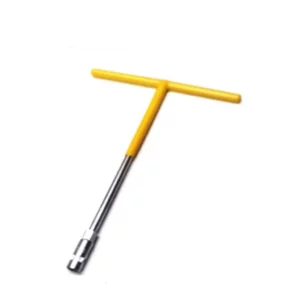
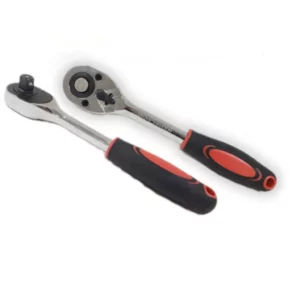
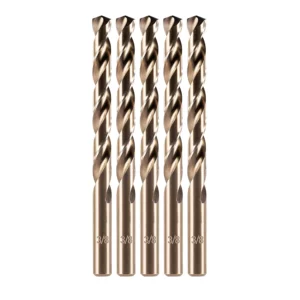
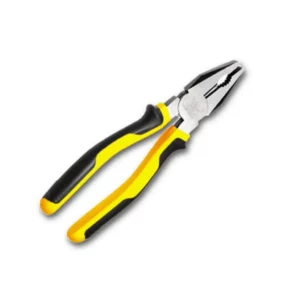
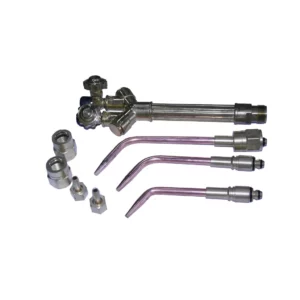
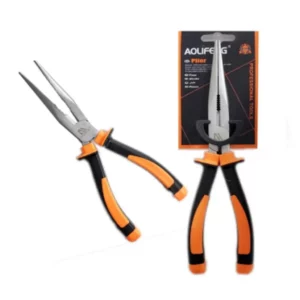
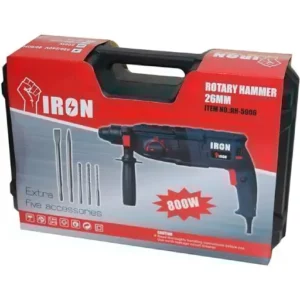
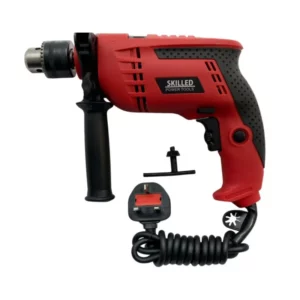
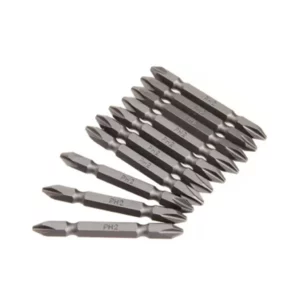
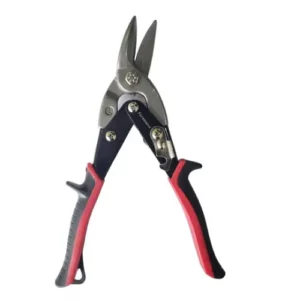


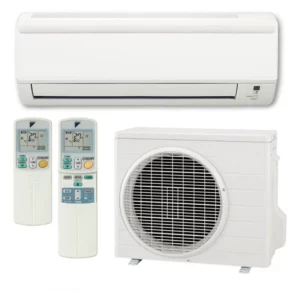
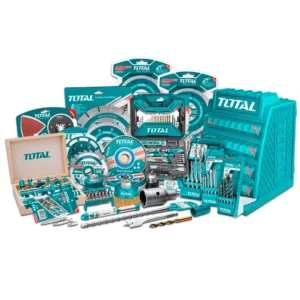

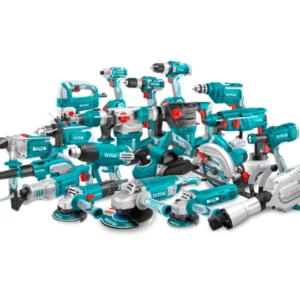
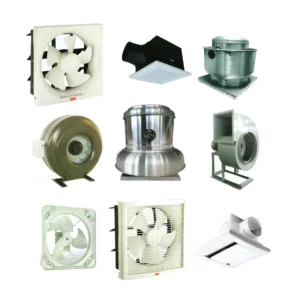
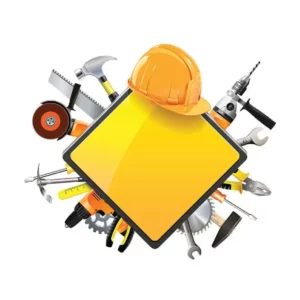
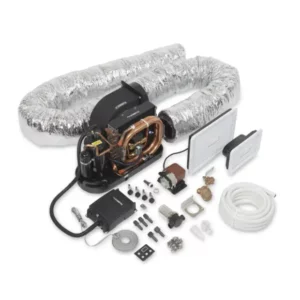
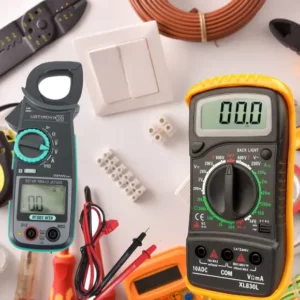
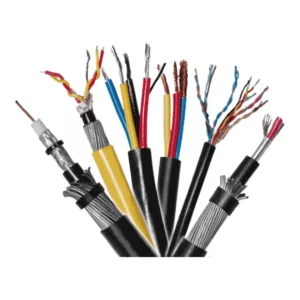


Christa –
Having tried to remove a broken screw in a tight space and finding it time consuming, I purchased these for use in the future to tackle similar situations. I did not have to wait long before I needed to remove a broken screw in a very similar situation to the above. I was very impressed with these mole grip type pliers I did the job with ease.